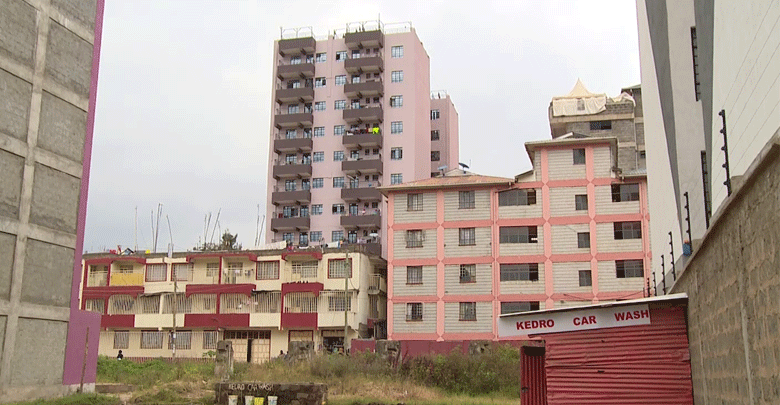Is Thika losing its industrial hub status to residents?
By Mathew Ndungu, July 31, 2021
As its population continues to grow rapidly, Thika’s industrial hub label is wearing out with each passing day.
The landscape of the famous town, which is affectionately known as the ‘Birmingham of Kenya’ is changing as residential developments crop up all over the town and its environs.
Similarities between Thika and Birmingham City in the United Kingdom is drawn from their industrial nature of hosting textile, food and chemical industries among others.
From hosting textile, food and chemical industries among others, increased rural-urban migration has seen the cropping up of resedential units that are slowly, but surely replacing factories.
Thika enjoys a population of 279,429 according to the 2019 National Census and continues to grow rapidly.
This has been attributed to rural-urban relocation of people seeking education, job opportunities and urban life.
In the former years, the town, which has a special place in the narrative of colonial Kenya, and is immortalised in texts, such as The Flame Trees of Thika had an undisputed industrial development crown.
According to locals, the town was full of industries and investors continually put their money in building factories at the strategically located town in the yester-years serving the now Murang’a, Kiambu, Machakos, Nairobi among other counties.
However, several infrastructural developments such as the construction of Nairobi-Thika Superhighway, formation of county governments and the push to have the town elevated to a city status has seen the town grow beyond industries, attracting people from all corners of the country and the world.

As a result, there has been a spike in demand for residential houses, shifting the focus of investors in the busy municipality.
Among the factories that closed shop due to lack of market and unfavourable business environment are leather factories Bulleys and Kenya tanneries, which employed thousands of Kenyans, Thika rubber suppliers, Kensack Fibre Industry, Kenya Textile Mills factories, among others whose brands topped the major employers in the entire Mount Kenya region.
Their land was subdivided and sold to real estate investors who have since developed the entire areas into residentials estates.
Within the estates, other small-scale businesses, such as tailors, retail shop owners, security companies, hotels among others are thriving.
Ready residential market
Currently, most of the land that used to house factories and industries is now occupied by high-rise residential buildings hosting between 40 and 100 families each.
A plot size measuring 40 square metres by 80 square metres is going for between Sh10 and Sh20 million depending on location and infrastructural development around it.
Residents say that while the industries used to offer them job opportunities, investors are attracted to residential real estate due to the readiness of the market for housing products.
“Thika used to be the talk of the country when it came to industrial development.
That narrative has changed over time and we don’t know whether it will ever get back on its feet again, going by the changing world and population impact,” Miriam Wangechi, a resident says.
Alfred Wanyoike, the chairman in charge of the business community at the busy town says that market readiness of housing products, availability of local building materials, such as concrete crushers and increased population that has resulted in a sharp demand for houses have flourished the lucrative property industry in the area.
“The houses here are affordable, accessible and strategically located such that you don’t have to enter Thika town to get to Murang’a or Nairobi. So many families have relocated to this area,” he says.
However, the locals have urged the government to intervene and awaken the dead industries and aid establishment of new ones so as to tap into the growing population.
As the population continues to rise, Kiambu County Government is leaving nothing to chance to improve infrastructure in the town even as it strives to elevate it to become Kenya’s fifth city.
Governor James Nyoro says his administration has commenced talks with the national government on infrastructural development of the busy town in a bid to elevate it to city status.
“We are hopeful that after Nakuru, Thika will be the next city and it is for this reason that we have commenced necessary steps to improve infrastructure in the municipality.
Now that we have the necessary population requirement, we are now building roads, installing street lights, upgrading our healthcare facilities among other massive developments,” said Nyoro, a month after the Senate voted to elevate Nakuru from a municipality to a city.
Even with these new developments, the town is still endowed with some of the most vibrant factories and industries, such as Bidco Oil Industries, Thika Pharmaceutical Manufacturers Limited, Devki Steel Mills and Broadway Bakeries, among others.